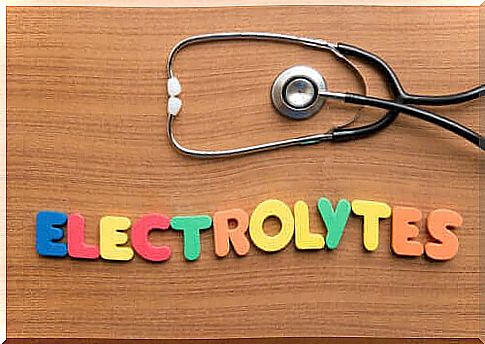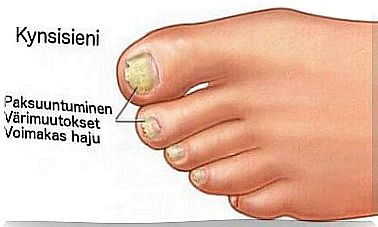What Are Electrolytes And What Are They Needed For?

Athletes are probably the group of people for whom electrolytes are most familiar. They are related to liquefaction, for example, and are talked about a lot overall. So what are electrolytes? Keep reading!
What are electrolytes?
Electrolytes are minerals found in the blood and other body secretions as well as inside cells. Their awesome feature is that they are capable of carrying electrical charges. This means that the electrolyte is able to dissolve in water and conduct electricity.
Electrolytes are very important for the body to function. As we will see in this article, electrolyte imbalance can be a life-threatening condition. These minerals are related to the circulation of fluid in the body as well as the acidity of blood pH and muscle function.
The main electrolytes in the human body are sodium, calcium, phosphorus, magnesium and potassium. Each electrolyte has its own normal blood concentration. For example:
- For potassium, normal values are between 3.5 and 5.3 mmol / l
- Normal sodium values are 136-145 mmol / l
- Normal values for chlorine are 97-107 mmol / l
Reference values may vary slightly between laboratories.
Causes of electrolyte imbalance
The electrolyte balance may be disturbed. For example, hormonal changes, diseases of various organs (such as the kidneys or liver), and even the use of medications can affect electrolyte balance. The most common causes of electrolyte imbalance are:
- Dehydration: When suffering from a dehydration, the body has lost fluids and thus electrolytes. Electrolytes may be depleted as a result of fever, diarrhea or vomiting, for example.
- Absorption disorders: Some diseases affect the intestinal absorption of nutrients. In this case, the ingested electrolytes may not enter the body.
- Diseases of the endocrine system: Diabetes or hypothyroidism are examples of hormonal problems that disturb the internal balance of the body.
- Chemotherapy: Cancer patients undergoing chemotherapy are highly susceptible to electrolyte imbalance. Personnel caring for these patients should ensure that they replace electrolytes lost during treatment.
- Medications: In addition to chemotherapy, some commonly used medications, such as diuretics and corticosteroids, cause electrolyte depletion.
- Kidney Diseases: The kidneys regulate the removal of various substances from the body. Renal dysregulation can cause changes in sodium, potassium, calcium, phosphorus and magnesium levels.

The most common electrolyte imbalances
Some electrolyte imbalances are more common than others. Some of them are temporary and self-healing, while others require external intervention to return to normal levels.
Many of these electrolyte imbalances are not immediately dangerous, but some can be tricky. Their long-term consequences can be serious.
For example, calcium may cause hypocalcaemia (lower than normal levels of calcium in the blood) or hypercalcaemia (higher than normal levels of calcium in the blood). In women, hypocalcaemia may increase the risk of osteoporosis at the onset of menopause, whereas hypercalcemia may lead to kidney stones.
Both excess and insufficient blood sodium, in turn, alter the function of neurons. Hyponatremia (low sodium) and hypernatremia (high sodium) can cause irritability and confusion. In extreme cases, the condition can lead to seizures.
Potassium is probably the electrolyte that causes the most emergencies. Myocardial cells need a certain amount of potassium to keep their heart rate at normal readings. Lack of potassium in the blood can trigger an arrhythmia with its own risks.
Excess potassium in the blood, although not a situation that requires urgent treatment, is a reason to see a doctor and find out about any kidney problems. The first sign of kidney failure may be high blood sugar with high levels of potassium in the blood.

Sources of electrolytes
It’s important to know what foods you get electrolytes from – not only to correct any deficiency, but also to ensure that your diet is balanced and based on your daily need for electrolytes.
In addition to sports drinks, electrolytes can be found in the following foods:
- Calcium: Calcium is found in many fish, especially sardines. It is also available in spinach and almonds.
- Phosphorus: Phosphorus is found in almonds and nuts. Lean meats and eggs are sure sources of phosphorus, as are dairy products such as cheese and yogurt.
- Sodium: Beet, celery, olives and tomato.
- Magnesium: Green leafy vegetables, fish and nuts. Magnesium is also high in chocolate.
- Potassium: Potassium is rich in green leafy vegetables and many fruits such as bananas and citrus fruits.









